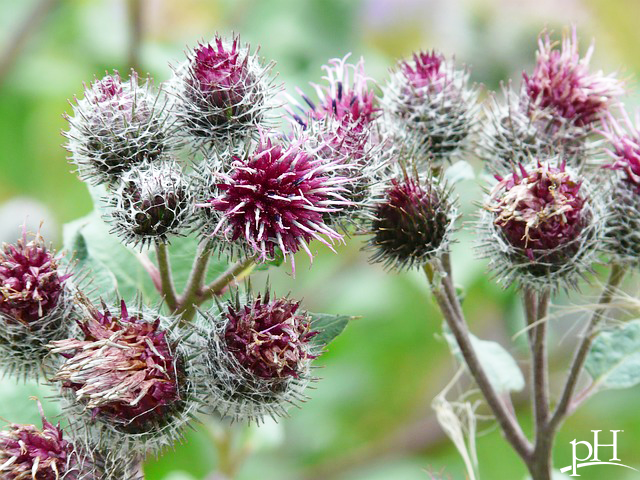Burdock: A soother, purifier, free radical fighter all in one?
11 years ago | Nutrition
By pH health care professionals
What is burdock?
Often known as an herbal detox remedy in alternative medicine, burdock is in the daisy plant family and grows as a weed in the United States and several other countries. In Japan and some parts of Europe, burdock is eaten as a vegetable.
What are some of the reported health benefits of burdock?
- Practitioners of traditional Chinese medicine sometimes blend burdock with other herbs to soothe sore throats and colds.
- Some proponents claim that burdock can benefit people with arthritis, diabetes, eczema, psoriasis and cancer.
- Traditionally, it has been used as a "blood purifier" to clear the bloodstream of toxins, as a diuretic (helping rid the body of excess water by increasing urine output), and as a topical remedy for skin problems such as eczema, acne and psoriasis.
- Burdock has been touted as an excellent metabolic tonic to support functioning of the liver and kidneys, digestion, lymphatic and endocrine systems.
- Medicinal uses of burdock in treating chronic diseases such as cancers, diabetes and AIDS have also been reported. Extracts of burdock root are found in a variety of herbal preparations, as well as homeopathic remedies.
- Animal-based research suggests that a type of fiber extracted from burdock may promote the growth of probiotics (immune-regulating bacteria naturally present in the human digestive tract). Other tests on animals show that burdock may fight free radicals (chemical by-products known to damage DNA) and alleviate liver damage induced by alcohol consumption.
- Burdock contains inulin, a natural dietary fiber, and is also used to improve digestion.
- Burdock as a root vegetable is said to possess considerably stronger antioxidant activity than common vegetables and fruits. In fact, recent studies confirm that burdock has prebiotic properties that could improve health.
- This root contains small quantities of many vital vitamins, including folic acid, riboflavin, pyridoxine, niacin, vitamins E and C. Both vitamins E and C are powerful natural antioxidants that may help the human body stave off infections, cancer and neurologic conditions.
- Burdock root contains beneficial amounts of the electrolyte potassium (308 mg or 6.5 percent of daily required levels per 100 g of the root) and is low in sodium. Potassium is an important component of cell and bodily fluids, and it helps control heart rate and blood pressure.
- Burdock also contains some valuable minerals such as iron, manganese and magnesium, and small amounts of zinc, calcium, selenium, and phosphorus.
- The herb is employed in the treatment of skin problems such as eczema (dermatitis), psoriasis and skin dryness. The plant parts have been used as an herbal remedy for liver and gallbladder complaints.
- Burdock leaves and stems have appetite stimulant properties and are a good remedy for gas and indigestion complaints.
So now that you know some of the many possible benefits of burdock, you might want to try it out for yourself in an organic tea or supplement. But remember, it is always recommended to consult a knowledgeable doctor about whether a certain supplement is right for you.
Enjoy Your Healthy Life!
The pH professional health care team includes recognized experts from a variety of health care and related disciplines, including physicians, attorneys, nutritionists, nurses and certified fitness instructors. This team also includes the members of the pH Medical Advisory Board, which constantly monitors all pH programs, products and services. To learn more about the pH Medical Advisory Board, click here.







